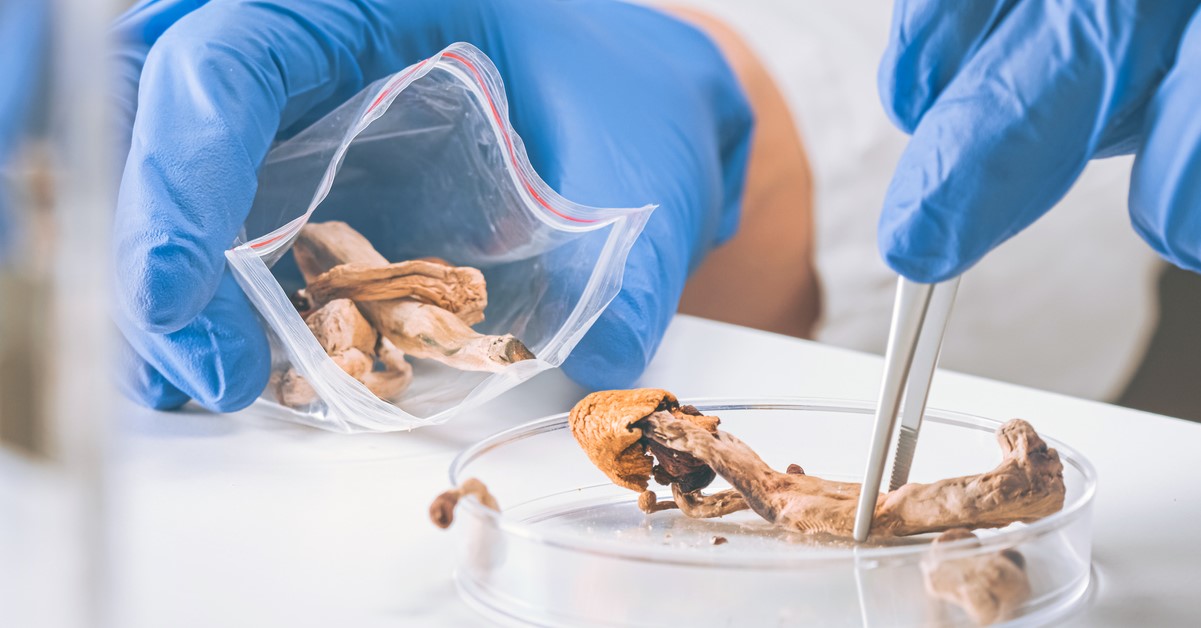
BioPharma Dive interviewed our Christine Moore on how to conduct psychedelic clinical research.
Psychedelic products are having a renaissance moment.
As evidence emerges about their potential for PTSD, depression, cancer-related distress and more, the market for psychedelics could swell from $2 billion in 2020 to $10.75 billion in 2027. With regulators and lawmakers seemingly on board, sponsors have more opportunities than ever to pursue clinical research in this high-velocity area.
“Everywhere you turn, there’s some news piece about it,” said Christine Moore, Ph.D., Vice President of Scientific Solutions, Neuroscience, at Worldwide Clinical Trials. “It’s not too surprising given the mental health crisis. We have a huge unmet need, so there’s a lot of enthusiasm about the potential of these products.”
But despite the momentum for psilocybin and other psychedelics, challenges remain. Of note, these programs differ significantly from conventional psychiatry trials. Aside from the obvious complexities of managing a drug that alters the mind, the regulatory and ethical nuances can hold ill-prepared developers back.
“These studies take time to do well,” Moore said. “Between the regulatory input, licensing to handle controlled substances, therapist training, site identification, and many other steps, there’s a lot of effort going into these programs and many barriers that must be addressed.”
That doesn’t mean new sponsors shouldn’t explore psychedelics. In fact, opportunities await many companies looking to navigate this new pharmacology frontier. Just take heed of a few things first:
Building a psychedelic protocol
Among the nuances to consider when structuring a psychedelic protocol is the objective — for some treatment models, it’s usually less about studying the psychedelic individually and more about how it facilitates psychotherapy. That plays out in two ways, Moore said.
One is cadence. Whereas a typical psychiatric trial might follow patients for a certain number of weeks after daily medication, most psychedelic protocols administer just a single dose after pre-dose preparatory sessions followed by post-dose integration sessions.
This psychedelic-assisted therapy model, in turn, changes how developers manage the patient experience. In a nonpsychedelic trial, sites should remain neutral with patients to remove non-specific treatment effects. If it’s truly the drug making someone better, investigators need to know.
“But that’s much more difficult to manage in psychedelic trials where therapy is intended to be part of the process,” Moore said. “It’s hard to disentangle the therapy’s effect with the drug’s effect, and maybe we don’t want to separate those in the first place.”
Even so, sponsors will want to standardize some aspects of a psychedelic trial, such as the space where treatment happens, characteristics of participating patients, staff involved, even the music and furniture, referred to as the “set and setting.” The needed experience makes site selection difficult, Moore added. Given the interest in running these trials, it is no longer feasible to only select investigators at academic institutions with a dedicated psychedelic research unit; however, sponsors should still apply rigor toward the search, targeting those with experience in the indication, controlled substances, and regulatory research.
Managing the ethics of psychedelic trials
Of all the challenges with psychedelics, Moore suggested that the ethical issues were among the most important to consider, especially given the often vulnerable patient population. Add to that an experience that alters your state of consciousness and the ethical obligations become that much more pronounced.
“We have to make sure that when patients are in a more vulnerable state in a dosing session, they’re kept safe,” Moore said.
Beyond ensuring a detailed informed consent process, having two therapists in the room and active video monitoring can help ensure the patient’s safety, as can establishing “what if” boundaries with the patient upfront, such as whether physical touch is welcomed by the patient should the session become difficult. These and other guidelines should be detailed in a therapist training manual.
But patient safety doesn’t stop being the priority when the session — or even the trial — ends. With people turning to psychedelic clinical trials because they’ve tried all other options, every program should account for care continuity.
“These trials are often someone’s last hope,” Moore said. “Patients who are in a fragile state have high expectations going in, so you have to ensure they continue to get care if they need it. You can’t just leave them hanging when the trial is over. Even when continuing with the psychedelic isn’t possible, protocols must consider how those patients can stay with the same psychotherapist or move to a new one after the trial closes.”
Managing the many moving parts
Ultimately, Moore said, she sees a future where psychedelic clinics commonly appear nationwide, as we have seen with ketamine. But first, products have to be approved, and that’s where sponsors find themselves today. Meeting the rigorous demands of a psychedelic trial may be challenging, but it’s not insurmountable if sponsors plan — and partner up — accordingly.
“There are a lot of moving parts, and managing all those parts is what experienced contract research organizations do well,” she said. “CROs manage clinical trials to keep product development on a fast and efficient path forward. They’re also highly experienced in nuanced trial management, which can make a world of difference when you’re talking about a drug class that is far different than any other treatment for mental health conditions.”
Learn how neuroscience support from Worldwide Clinical Trials can help you design, launch and manage your psychedelic trial.
Originally published in BioPharma Dive on August 29th, 2022.


